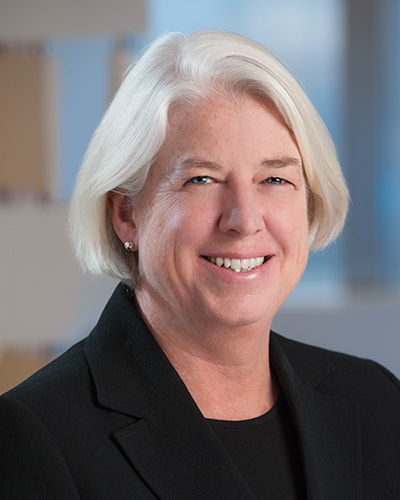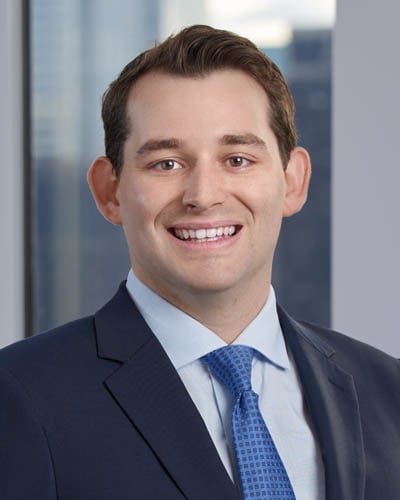In this edition of Ropes & Gray’s podcast series On the Ropes: Enforcement Risk Roundtable, litigation partner Colleen Conry and associate Kyle Zipf provide an update on the anti-corruption landscape and related developments in Ghana following the country’s recent presidential and parliamentary elections.
Transcript:
Kyle Zipf: Welcome to our latest installment of On the Ropes: Enforcement Risk Roundtable, a Ropes & Gray podcast series focused on global anti-corruption and international risk. I’m Kyle Zipf, a litigation & enforcement associate based in New York. I’m joined by my colleague Colleen Conry, a litigation partner who’s also the managing partner of Ropes & Gray’s Washington, D.C. office. Today, in our next stop on our Enforcement Express world tour, we’ll be exploring the current anti-corruption landscape in Ghana. I’ll kick things off by giving a little background and will pass things off to Colleen.
Ghana is an interesting country because it’s a bit of an anomaly from a corruption perspective. It’s located in a part of the world that’s generally thought of as politically unstable and having a lot of corruption issues, but Ghana itself isn’t really like its neighboring countries. It’s politically stable, having held contested multiparty elections and seen peaceful transitions of power over the last nearly 30 years, a trend that continued after the recent presidential election held this past December. And up until COVID hit early last year, Ghana had enjoyed sustained economic growth, raising its per capita Gross National Income nearly 1,000% over roughly the last two decades. But all this doesn’t mean Ghana doesn’t face its share of corruption-related issues. International and domestic survey data has shown that Ghana still struggles with these issues, and loses huge amounts of money to corruption. A recent audit showed that the government would regularly pay contractors two or three times for the same service and that there were nearly 11,000 public sector employees on payroll who weren’t actually working for the government. A local chapter of Transparency International, called the Ghana Integrity Initiative, estimated that Ghana loses close to $3 billion per year to corruption.
Colleen Conry: Kyle, these audits you mentioned, which were mostly done over the last few years, have been a good start to pinpoint where the issues are and seem to be something that the country is doing a lot more often. Ghana also has a fairly robust set of anti-corruption laws. Its centerpiece is the Criminal Offenses Act of 1960, which covers offenses like bribery, extortion, use of public office for personal gain, and bribery of foreign officials. Other anti-corruption laws also lend support, such as the Economic and Organized Crime Office Act, the Public Procurement Law, the Whistleblower Act, Anti-Money Laundering Act, and Public Financial Management Act. Ghana has also signed on to a number of national and international anti-corruption initiatives. And domestically, Ghana has put anti-corruption measures into place like the National Anti-Corruption Action Plan and, in collaboration with the EU, the Anti-Corruption, Rule of Law and Accountability Program. So it seems like the problem in Ghana doesn’t lie with the lack of laws to help fight corruption, rather, the issue seems to be in the enforcement of the laws that exist. Realizing this, in 2017, President Akufo-Addo, who just won re-election, passed the Office of the Special Prosecutor Act, which created the Office of the Special Prosecutor. This agency was broadly tasked with investigating and prosecuting corruption. One year later, Martin Amidu was sworn in as Special Prosecutor.
Kyle Zipf: And this was the first time something like this had ever existed in Ghana, but the results have been sort of a mixed bag. On one hand, the Special Prosecutor’s office has brought eight prosecutions for corruption-related offenses, launched many investigations prompted by tips from Ghanaians, and has opened up lines of communication across anti-corruption stakeholders in the Ghanaian government like the Ministry of Finance and the Auditor-General. But on the other hand, the Special Prosecutor and the president have both been criticized for the slow pace of these investigations. Contributing to this slow start could be a lack of resources dedicated to the office coupled with some stonewalling and reluctance to assist in the investigations by other government agencies. But with the Special Prosecutor having just resigned in November 2020, there is a new acting Special Prosecutor in place, making the future of this office a little unclear.
A mixed bag seems like a good description of the Special Prosecutor’s time in office, which came to an end in a very public way over his very serious and public dissatisfaction regarding an entity called Agyapa Royalties Limited. COVID has hit Ghana’s economy hard, causing it to search for other sources of revenue to help its economic recovery. In late-2020, the government came up with a plan to sell royalty rights to its gold reserves in exchange for cash now. Ghana plans to bundle about three quarters of its royalties received from over a dozen gold mines into an entity called Agyapa. It then plans to list this company on the London and Ghana stock exchanges and sell up to 49% of the shares of that entity. Because of some rumors of foul play in the deal, the Special Prosecutor asked to stop the IPO so that he could conduct a risk assessment. Colleen, would you like to talk about what he found?
Colleen Conry: The Special Prosecutor did eventually get his way, but the results of his risk assessment were troubling, raising some serious questions about conflicts of interest and potential corruption. For example, the Special Prosecutor’s report alleged that Agyapa’s prospective CEO is the son of a senior cabinet official and friend of the deputy Finance Minister. The investment bank involved in the deal was also founded by the Finance Minister, whose wife still holds a non-executive director position at the bank. The Special Prosecutor also laid out the connections between the transaction advisor appointed on the project and that investment bank. The Special Prosecutor’s official assessment was that he suspected “bid rigging and corruption activity, including the potential for illicit financial flows and money laundering.” And while the president publicly said that he will review those findings closely, there is disagreement about what has actually happened behind closed doors. According to the Special Prosecutor, the president’s resistance to his findings was so strong that the Special Prosecutor decided to resign. In his resignation letter, he went so far as to say “[t]he reaction I received for daring to produce the Agyapa Royalties Limited Transactions anti-corruption report convinces me . . . that I was not intended to exercise any independence as the Special Prosecutor.” Those are some strong words from the Special Prosecutor.
Kyle Zipf: So it sounds like the Special Prosecutor’s issue was not so much with the plan itself, but with these questions about conflicts of interest and potential corruption that his initial risk assessment uncovered. But that can’t be said for the rest of the government. This plan drew serious opposition from the president’s opposing party and has virtually no bi-partisan support. Think tanks have also questioned the deal’s valuation, with at least one saying that the country has undervalued the gold revenues by at least 60 percent. But unfortunately, we don’t have a resolution to this issue yet—reports indicate that the deal is currently suspended, and the imminent shift in political power as a result of the recent election makes the deal’s ultimate success much less likely. We’ve talked a little about the recent election. Colleen, what happened there?
Colleen Conry: So in December 2020, Ghana held both a presidential and parliamentary election. The incumbent, Nana Akufo-Addo, was re-elected to a second, four-year term as president by an extremely narrow margin, winning just over 51% of the vote. He narrowly defeated John Mahama, who was actually the president before Akufo-Addo defeated him in the prior election.
Kyle Zipf: On the parliamentary front, there was a huge shift in political power. Ghana has two main parties, the NDC and the NPP. Each won 137 of the 275 total parliamentary seats, with the single remaining seat going to an independent candidate. This represents a significant loss to Akufo-Addo’s NPP, which used to enjoy a clear majority of seats. This also poses both a serious barrier to the Agyapa deal and to making good on Akufo-Addo’s campaign promise to pass a $17 billion program to stimulate economic growth in Ghana. And naturally, both parties aren’t satisfied with their results in either election. The NDC has indicated that it plans to challenge the results of both the presidential and parliamentary elections. And even before the election was held, Mahama started accusing Akufo-Addo of vote-rigging. And after his defeat, Mahama said that the president had used the military to intimidate voters in order to sway the election results. He called the results “fraudulent,” and indicated that he plans to challenge them. We haven’t seen any follow up on this yet, but it’s certainly something to watch out for. So Colleen, how does all of this impact those that are doing business in Ghana right now, or looking to acquire an entity based there or with operations in the country?
Colleen Conry: Well, an FCPA risk assessment, compliance program, and related anti-corruption training program is really important and it’s really just a must if doing business with any government entity in Ghana. On the acquisition side, acquirers should put forward a strong due diligence effort both in terms of quantity, so the time afforded for diligence, as well as quality, by reviewing relevant records. This process also should be tailored to the risks of the individual target—a “one-size-fits-all” approach just won’t do in Ghana.
Kyle Zipf: Colleen, that was a wonderful discussion. Thank you for joining me and sharing your insights. And thank you once more to our listeners. If you have any feedback or suggestions for jurisdictions or specific topics you would like us to cover, please contact us at express@ropesgray.com or feel free to reach out to any of us directly. You can also subscribe to this series wherever you regularly listen to your podcasts, including on Apple and Spotify. Thanks again for listening.
Stay Up To Date with Ropes & Gray
Ropes & Gray attorneys provide timely analysis on legal developments, court decisions and changes in legislation and regulations.
Stay in the loop with all things Ropes & Gray, and find out more about our people, culture, initiatives and everything that’s happening.
We regularly notify our clients and contacts of significant legal developments, news, webinars and teleconferences that affect their industries.




